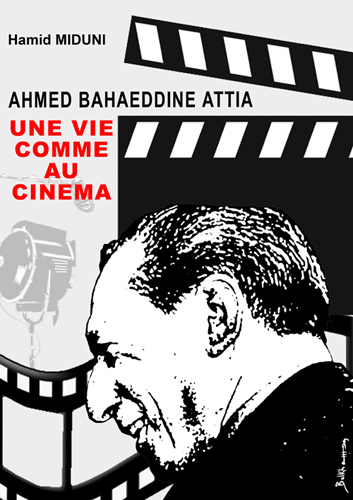Fiche Personne
Musique
Théâtre
Cinéma/TV
Littérature / édition
Danse
Histoire/société
Média
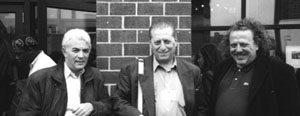 © Mohamed Attia, entouré des réalisateurs Mohamed Chouikh (Algérie) et Moktar Ladjimi (Tunisie), Montréal 1998 / Olivier Barlet
© Mohamed Attia, entouré des réalisateurs Mohamed Chouikh (Algérie) et Moktar Ladjimi (Tunisie), Montréal 1998 / Olivier Barlet
Ahmed Baha Eddine Attia
Réalisateur/trice, Producteur/trice, Président/e, Distributeur/trice, Assistant/e réalisateur
Tunisie
 © Mohamed Attia, entouré des réalisateurs Mohamed Chouikh (Algérie) et Moktar Ladjimi (Tunisie), Montréal 1998 / Olivier Barlet
© Mohamed Attia, entouré des réalisateurs Mohamed Chouikh (Algérie) et Moktar Ladjimi (Tunisie), Montréal 1998 / Olivier Barlet
Français
Aussi connu comme
Ahmed Bahaeddine ATTIA
Né en 1946 à Sousse, ville maritime du centre de la Tunisie.
Une jeunesse passée entre Ciné-clubs et Cinéastes amateurs, des études de Cinéma à Rome en Italie, il a choisi d’être un professionnel, au début comme assistant réalisateur, par la suite comme directeur de production et producteur exécutif, il s’est toujours impliqué dans la réflexion et la construction d’une stratégie pour l’émergence d’une expression cinématographique et audiovisuelle de proximité et identitaire.
Président de l’association des Cinéastes Tunisiens puis son secrétaire général pendant plusieurs années, Vice président de la Fédération Pana-Africaine des Cinéastes (FEPACI) de 1975 à 1985, secrétaire exécutif de la même FEPACI de 1989 à 1995.
Fonde l’APIMED (Association des Producteurs Indépendants de la Méditerranée) en 1997 qu’il préside depuis, et est à la tête, depuis 2000, de la Chambre Syndicale des Producteurs Tunisiens ainsi que de la Coordination Maghrébine des Exploitants Distributeurs (crée en janvier 2003)
Militant du cinéma, il a conjugué sa vie avec son activité professionnelle, il a réfléchi, écrit, proposé des solutions praticables pour toutes les difficultés que rencontre ce secteur dans son pays et sur le continent.
Un homme du sud, méditerranéen convaincu, avec son héritage Arabo-musulman mais phénicien aussi. Il a toujours cru dans le dialogue nord-sud, dans l’universalité du cinéma quelque soit son origine.
Il fonde son entreprise, Cinétéléfilms, en 1983, qui est l’expression pratique de sa vision pour un cinéma du sud qui plaise à son public et qui jette un regard intérieur sur la société hors des tabous et des interdits.
Conscient de la faiblesse de son marché intérieur, il a toujours tenté avec ses productions de s’ouvrir au marché international.
Membre du jury de festivals prestigieux (Istanbul, Cannes, Valences, Mons, Carthage,?) et a dirigé les JCC (Journées Cinématographiques de Carthage) pour 3 sessions :1992, 1994 et 2004.
Après une longue maladie, il est décédé le 10 août 2007 et a été enterré à Sousse en Tunisie.
Ahmed Bahaeddine ATTIA
Né en 1946 à Sousse, ville maritime du centre de la Tunisie.
Une jeunesse passée entre Ciné-clubs et Cinéastes amateurs, des études de Cinéma à Rome en Italie, il a choisi d’être un professionnel, au début comme assistant réalisateur, par la suite comme directeur de production et producteur exécutif, il s’est toujours impliqué dans la réflexion et la construction d’une stratégie pour l’émergence d’une expression cinématographique et audiovisuelle de proximité et identitaire.
Président de l’association des Cinéastes Tunisiens puis son secrétaire général pendant plusieurs années, Vice président de la Fédération Pana-Africaine des Cinéastes (FEPACI) de 1975 à 1985, secrétaire exécutif de la même FEPACI de 1989 à 1995.
Fonde l’APIMED (Association des Producteurs Indépendants de la Méditerranée) en 1997 qu’il préside depuis, et est à la tête, depuis 2000, de la Chambre Syndicale des Producteurs Tunisiens ainsi que de la Coordination Maghrébine des Exploitants Distributeurs (crée en janvier 2003)
Militant du cinéma, il a conjugué sa vie avec son activité professionnelle, il a réfléchi, écrit, proposé des solutions praticables pour toutes les difficultés que rencontre ce secteur dans son pays et sur le continent.
Un homme du sud, méditerranéen convaincu, avec son héritage Arabo-musulman mais phénicien aussi. Il a toujours cru dans le dialogue nord-sud, dans l’universalité du cinéma quelque soit son origine.
Il fonde son entreprise, Cinétéléfilms, en 1983, qui est l’expression pratique de sa vision pour un cinéma du sud qui plaise à son public et qui jette un regard intérieur sur la société hors des tabous et des interdits.
Conscient de la faiblesse de son marché intérieur, il a toujours tenté avec ses productions de s’ouvrir au marché international.
Membre du jury de festivals prestigieux (Istanbul, Cannes, Valences, Mons, Carthage,?) et a dirigé les JCC (Journées Cinématographiques de Carthage) pour 3 sessions :1992, 1994 et 2004.
Après une longue maladie, il est décédé le 10 août 2007 et a été enterré à Sousse en Tunisie.
English
Also known as
Ahmed Baha Eddine ATTIA
Born in 1946 in Sousse, a sea-coast city in the Centre of Tunisia.
He spent his youth spent between Film Societies and Amateur Film-makers. After completing film studies in Rome, Italy, he started professional life as an Assistant Director, and was later a film Production Manager and Executive Producer. He’s always been involved in reflecting and developing a strategy towards the emergence of a cinematographic and audiovisual expression of proximity and cultural identity.
Chair of the Tunisian Directors’ Association and later its Secretary General for several years, Vice-President of the Pan-African Federation of Directors (FEPACI) from 1975 to 1985, FEPACI Executive Secretary from 1989 to 1995.
Founder of the APIMED (Mediterranean Independent Producers’ Association) in 1997 and its Chair from the beginning, he’s been since 2000 at the head of the Tunisian Producers’ Union Chamber as well as the Maghreb Coordination of Exhibitors Distributors (established in January 2003).
Cinema activist, his life has always been intermingled with his professional activity, he has done a lot of thinking, writing, proposed feasible solutions towards resolving all the difficulties met by this sector in his country and on the continent.
He’s a man of the South, a convinced Mediterranean, beside his Arab Muslim as well as Phoenician inheritage. He’s always deeply believed in North-South dialogue, in the universal quality of cinema whatever its origin.
In 1983, he founded his company, Cinetelefilms, which reflects in a practical way his vision towards a South cinema that would attract its audience and cast an eye on society from within, leaving aside taboos and prohibitions.
Conscious of the weaknesses of the local market, he has kept trying to penetrate the international market through his productions.
Jury member in prestigious festivals (Istanbul, Cannes, Valences, Mons, Carthage?), he also was Director of the JCC sessions (Carthage Cinematographic Days).
He died the 11th of August 2007 after a long illness, and has been buried in Sousse in Tunisia.
Ahmed Baha Eddine ATTIA
Born in 1946 in Sousse, a sea-coast city in the Centre of Tunisia.
He spent his youth spent between Film Societies and Amateur Film-makers. After completing film studies in Rome, Italy, he started professional life as an Assistant Director, and was later a film Production Manager and Executive Producer. He’s always been involved in reflecting and developing a strategy towards the emergence of a cinematographic and audiovisual expression of proximity and cultural identity.
Chair of the Tunisian Directors’ Association and later its Secretary General for several years, Vice-President of the Pan-African Federation of Directors (FEPACI) from 1975 to 1985, FEPACI Executive Secretary from 1989 to 1995.
Founder of the APIMED (Mediterranean Independent Producers’ Association) in 1997 and its Chair from the beginning, he’s been since 2000 at the head of the Tunisian Producers’ Union Chamber as well as the Maghreb Coordination of Exhibitors Distributors (established in January 2003).
Cinema activist, his life has always been intermingled with his professional activity, he has done a lot of thinking, writing, proposed feasible solutions towards resolving all the difficulties met by this sector in his country and on the continent.
He’s a man of the South, a convinced Mediterranean, beside his Arab Muslim as well as Phoenician inheritage. He’s always deeply believed in North-South dialogue, in the universal quality of cinema whatever its origin.
In 1983, he founded his company, Cinetelefilms, which reflects in a practical way his vision towards a South cinema that would attract its audience and cast an eye on society from within, leaving aside taboos and prohibitions.
Conscious of the weaknesses of the local market, he has kept trying to penetrate the international market through his productions.
Jury member in prestigious festivals (Istanbul, Cannes, Valences, Mons, Carthage?), he also was Director of the JCC sessions (Carthage Cinematographic Days).
He died the 11th of August 2007 after a long illness, and has been buried in Sousse in Tunisia.
Films(s)
-
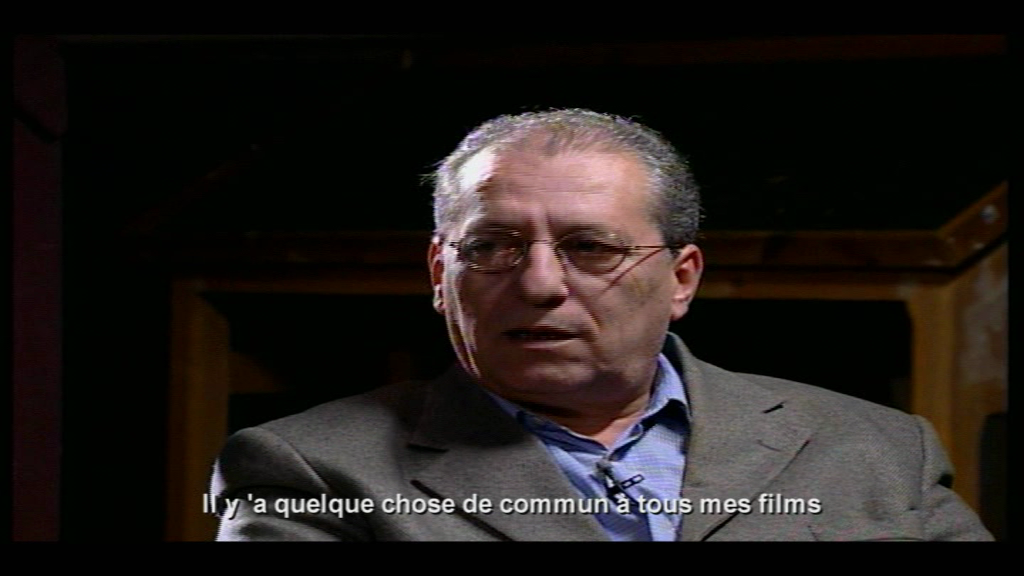 Ahmed Baba Eddine AttiaMoyen-métrage – 2014Le parcours tumultueux d'un cinéaste-combattant, qui a produit certains des plus grands films tunisiens ("L'homme de cendres" et "Bezness" de Nouri Bouzid, "Les silences du palais&…Ahmed Baha Eddine Attia est lié(e) à ce film en tant que acteur/trice
Ahmed Baba Eddine AttiaMoyen-métrage – 2014Le parcours tumultueux d'un cinéaste-combattant, qui a produit certains des plus grands films tunisiens ("L'homme de cendres" et "Bezness" de Nouri Bouzid, "Les silences du palais&…Ahmed Baha Eddine Attia est lié(e) à ce film en tant que acteur/trice -
 Ahmed Attia, producteur malgré tout– 2008Une esquisse du portrait de Ahmed Baha Eddine Attia, un homme dans la tourmente des images, et un producteur malgré tout. Khaled W. Barsaoui, Tunisie, 2008Ahmed Baha Eddine Attia est lié(e) à ce film en tant que acteur/trice
Ahmed Attia, producteur malgré tout– 2008Une esquisse du portrait de Ahmed Baha Eddine Attia, un homme dans la tourmente des images, et un producteur malgré tout. Khaled W. Barsaoui, Tunisie, 2008Ahmed Baha Eddine Attia est lié(e) à ce film en tant que acteur/trice -
 Ahmed Baha Eddine Attia, l’aventurierCourt-métrage – 2007Synopsis : Portrait réalisé quelques semaines avant le décès du célèbre producteur Ahmed Attia, figure tout à la fois emblématique et atypique d’un cinéma tunisien dont il a fortement marqué le renouveau, bien au-delà…Ahmed Baha Eddine Attia est lié(e) à ce film en tant que acteur/trice
Ahmed Baha Eddine Attia, l’aventurierCourt-métrage – 2007Synopsis : Portrait réalisé quelques semaines avant le décès du célèbre producteur Ahmed Attia, figure tout à la fois emblématique et atypique d’un cinéma tunisien dont il a fortement marqué le renouveau, bien au-delà…Ahmed Baha Eddine Attia est lié(e) à ce film en tant que acteur/trice -
 Train de Canhoca (Le) | Comboio Da CañhocaLong-métrage – 20041957, la lutte pour la survie d’Angolais arrêtés par les autorités coloniales portugaises dans la province de Malanga. Le film raconte l’histoire de 19 prisonniers politiques qui voyagent en chariot couvert, en direction…Ahmed Baha Eddine Attia est lié(e) à ce film en tant que producteur/trice
Train de Canhoca (Le) | Comboio Da CañhocaLong-métrage – 20041957, la lutte pour la survie d’Angolais arrêtés par les autorités coloniales portugaises dans la province de Malanga. Le film raconte l’histoire de 19 prisonniers politiques qui voyagent en chariot couvert, en direction…Ahmed Baha Eddine Attia est lié(e) à ce film en tant que producteur/trice -
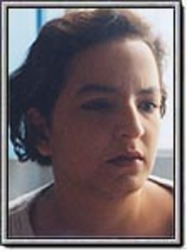 En faceCourt-métrage – 1999Tunis de nos jours. Mémia, vingt ans, souffre d'un léger handicap mental. Pour la première fois, elle éprouve un amour violent et secret pour son voisin, qu'elle ne cesse d'observe…Ahmed Baha Eddine Attia est lié(e) à ce film en tant que producteur/trice
En faceCourt-métrage – 1999Tunis de nos jours. Mémia, vingt ans, souffre d'un léger handicap mental. Pour la première fois, elle éprouve un amour violent et secret pour son voisin, qu'elle ne cesse d'observe…Ahmed Baha Eddine Attia est lié(e) à ce film en tant que producteur/trice -
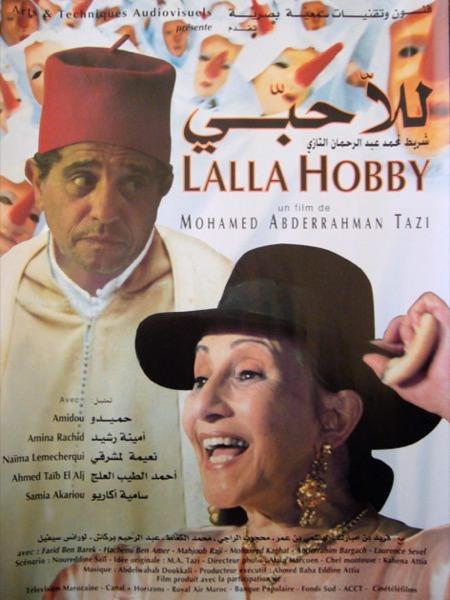 Lalla HobbyLong-métrage – 1996Après un essai infructueux de traversée du détroit de Gibraltar à bord d'une patera, Haj Ben Moussa se fait accueillir par les gendarmes, et enfermer à la prison de Tanger. Toute la…Ahmed Baha Eddine Attia est lié(e) à ce film en tant que producteur/trice exécutif/ve
Lalla HobbyLong-métrage – 1996Après un essai infructueux de traversée du détroit de Gibraltar à bord d'une patera, Haj Ben Moussa se fait accueillir par les gendarmes, et enfermer à la prison de Tanger. Toute la…Ahmed Baha Eddine Attia est lié(e) à ce film en tant que producteur/trice exécutif/ve -
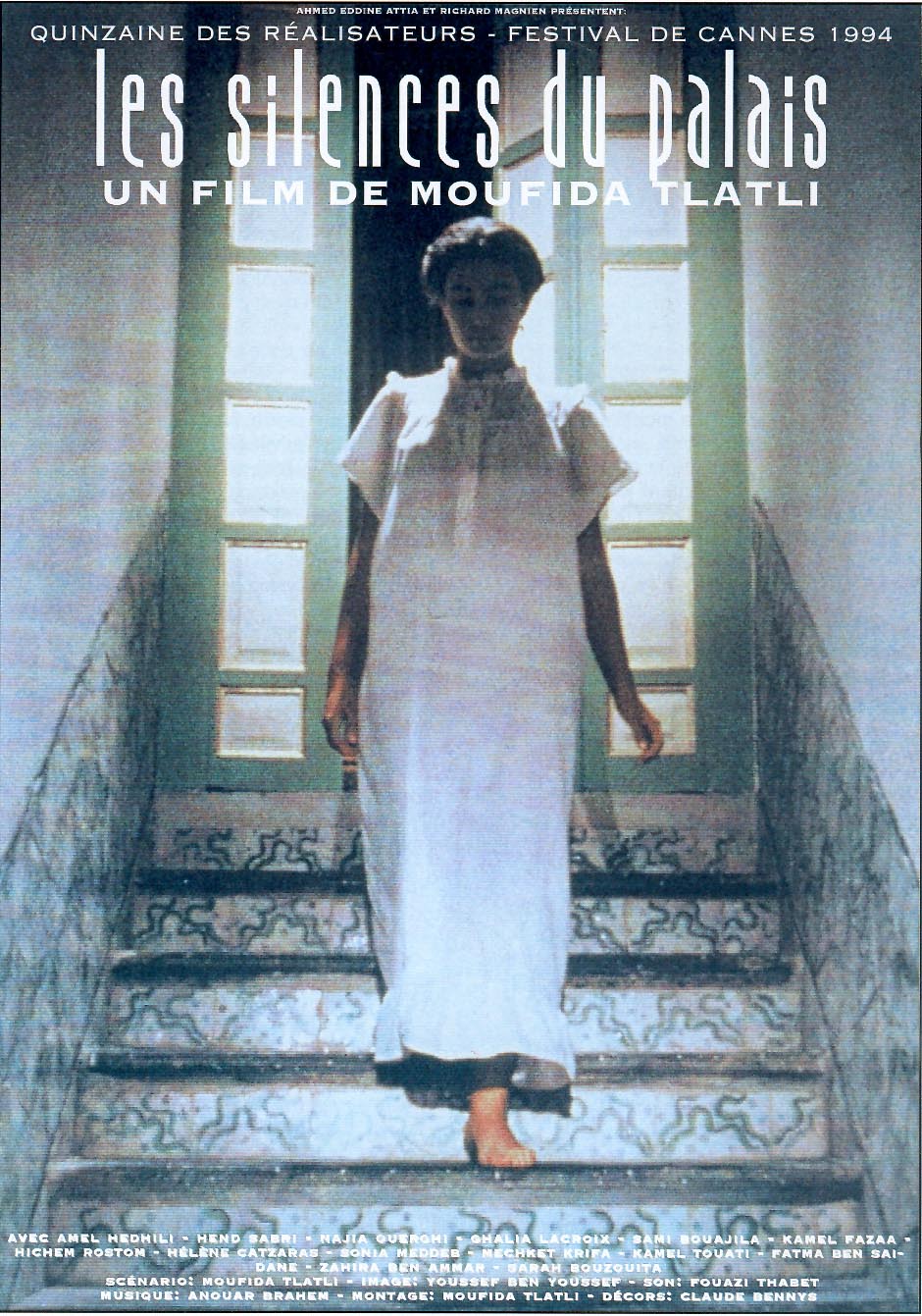 Silences du Palais (Les)Long-métrage – 1994Tunisie, années soixante. Alia, vingt-cinq ans, gagne sa vie en chantant dans les mariages. Son compagnon, Lotfi, ex-militant de l’indépendance tunisienne, ne lui permet pas de garder l’enfant qu’elle attend. Apprenant l…Ahmed Baha Eddine Attia est lié(e) à ce film en tant que producteur/trice
Silences du Palais (Les)Long-métrage – 1994Tunisie, années soixante. Alia, vingt-cinq ans, gagne sa vie en chantant dans les mariages. Son compagnon, Lotfi, ex-militant de l’indépendance tunisienne, ne lui permet pas de garder l’enfant qu’elle attend. Apprenant l…Ahmed Baha Eddine Attia est lié(e) à ce film en tant que producteur/trice -
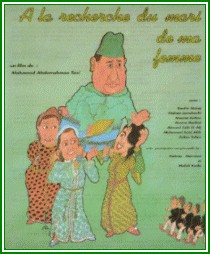 À la recherche du mari de ma femme (Al-bahth an zaouj imaraatî)Long-métrage – 1993Un riche bijoutier de Fès, Hadj Benmoussa, polygame, semble gérer "harmonieusement" l'entente entre ses trois femmes jusqu'au jour où Houda, la 3ème épouse, jeune et b…Ahmed Baha Eddine Attia est lié(e) à ce film en tant que producteur/trice
À la recherche du mari de ma femme (Al-bahth an zaouj imaraatî)Long-métrage – 1993Un riche bijoutier de Fès, Hadj Benmoussa, polygame, semble gérer "harmonieusement" l'entente entre ses trois femmes jusqu'au jour où Houda, la 3ème épouse, jeune et b…Ahmed Baha Eddine Attia est lié(e) à ce film en tant que producteur/trice -
 Guerre du Golfe… et après ! (La) | Harbu al-khalîj wa ba’du ?Long-métrage – 1992Le regard de cinq cinéastes arbes sur la guerre du Golfe. Différents par leurs œuvres et leurs itinéraires respectifs, ils ont en commun le même souci d’authenticité : C’est Shéhérazade qu’on assassine de Nouri Bouzid (T…Ahmed Baha Eddine Attia est lié(e) à ce film en tant que producteur/trice
Guerre du Golfe… et après ! (La) | Harbu al-khalîj wa ba’du ?Long-métrage – 1992Le regard de cinq cinéastes arbes sur la guerre du Golfe. Différents par leurs œuvres et leurs itinéraires respectifs, ils ont en commun le même souci d’authenticité : C’est Shéhérazade qu’on assassine de Nouri Bouzid (T…Ahmed Baha Eddine Attia est lié(e) à ce film en tant que producteur/trice -
 Fifty fifty mon amourCourt-métrage – 199235mm, couleur/N&B, fiction, 1992. 1992 | Carthage’92 * Prix ATCE/La Presse Festivals de Clermont Ferrand, Oberhausen, Rotterdam, New York….Ahmed Baha Eddine Attia est lié(e) à ce film en tant que producteur/trice
Fifty fifty mon amourCourt-métrage – 199235mm, couleur/N&B, fiction, 1992. 1992 | Carthage’92 * Prix ATCE/La Presse Festivals de Clermont Ferrand, Oberhausen, Rotterdam, New York….Ahmed Baha Eddine Attia est lié(e) à ce film en tant que producteur/trice -
 À la recherche de ShaïmaCourt-métrage – 1991Ce court métrage est un épisode du film collectif Harb al-halig…wa ba’da ? – La guerre du Golfe… et après ?Ahmed Baha Eddine Attia est lié(e) à ce film en tant que producteur/trice
À la recherche de ShaïmaCourt-métrage – 1991Ce court métrage est un épisode du film collectif Harb al-halig…wa ba’da ? – La guerre du Golfe… et après ?Ahmed Baha Eddine Attia est lié(e) à ce film en tant que producteur/trice -
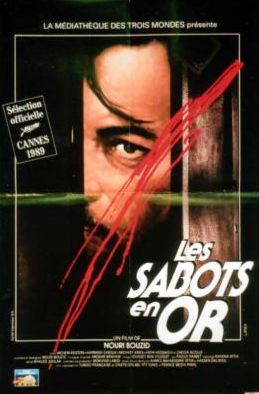 Sabots en or (Les)Long-métrage – 1988Youssef Soltane, un intellectuel tunisien de 45 ans, est le pur produit d’une génération qui a connu les périodes euphoriques des grandes idéologies des années 1960 puis leur faillite. Il fut emprisonné et torturé pour s…Ahmed Baha Eddine Attia est lié(e) à ce film en tant que producteur/trice
Sabots en or (Les)Long-métrage – 1988Youssef Soltane, un intellectuel tunisien de 45 ans, est le pur produit d’une génération qui a connu les périodes euphoriques des grandes idéologies des années 1960 puis leur faillite. Il fut emprisonné et torturé pour s…Ahmed Baha Eddine Attia est lié(e) à ce film en tant que producteur/trice -
 Au pays du Tarayoun– 1985La confection des vêtements des Tunisiennes, la mode et leurs particularités selon les régions. A travers l’histoire du costume traditionnel féminin et la somme des signes dont il est chargé, l’héroïne du film part à …Ahmed Baha Eddine Attia est lié(e) à ce film en tant que producteur/trice
Au pays du Tarayoun– 1985La confection des vêtements des Tunisiennes, la mode et leurs particularités selon les régions. A travers l’histoire du costume traditionnel féminin et la somme des signes dont il est chargé, l’héroïne du film part à …Ahmed Baha Eddine Attia est lié(e) à ce film en tant que producteur/trice -
 Côte de corail (La)– 1980Ahmed Baha Eddine Attia est lié(e) à ce film en tant que réalisateur/trice
Côte de corail (La)– 1980Ahmed Baha Eddine Attia est lié(e) à ce film en tant que réalisateur/trice -
 Mémoire des mains (la)Court-métrage – 1980Réalisé en 1980, Ahmed Baha Eddine Attia signe également sur ce film le scénario. (source : les Cinémas d'Afrique, dictionnaire). M. Attia n'était jusqu'alors qu'…Ahmed Baha Eddine Attia est lié(e) à ce film en tant que réalisateur/trice
Mémoire des mains (la)Court-métrage – 1980Réalisé en 1980, Ahmed Baha Eddine Attia signe également sur ce film le scénario. (source : les Cinémas d'Afrique, dictionnaire). M. Attia n'était jusqu'alors qu'…Ahmed Baha Eddine Attia est lié(e) à ce film en tant que réalisateur/trice -
 Université de Tunis (L’)– 1975Ahmed Baha Eddine Attia est lié(e) à ce film en tant que réalisateur/trice
Université de Tunis (L’)– 1975Ahmed Baha Eddine Attia est lié(e) à ce film en tant que réalisateur/trice -
 Villes ouvertes de TunisieCourt-métrage – 1975Documentaire réalisé en 1975, c’est à dire la même année que L’Université de Tunis, Ahmed Baha Eddine Attia signe également sur ce film le scénario.Ahmed Baha Eddine Attia est lié(e) à ce film en tant que réalisateur/trice
Villes ouvertes de TunisieCourt-métrage – 1975Documentaire réalisé en 1975, c’est à dire la même année que L’Université de Tunis, Ahmed Baha Eddine Attia signe également sur ce film le scénario.Ahmed Baha Eddine Attia est lié(e) à ce film en tant que réalisateur/trice -
 Olivier (L’) [réalisé par Ahmed Baha Eddine ATTIA]– 1974réalisé par Ahmed Baha Eddine ATTIAAhmed Baha Eddine Attia est lié(e) à ce film en tant que réalisateur/trice
Olivier (L’) [réalisé par Ahmed Baha Eddine ATTIA]– 1974réalisé par Ahmed Baha Eddine ATTIAAhmed Baha Eddine Attia est lié(e) à ce film en tant que réalisateur/trice -
 Industrie de la chaussure (L’)– 1973Ahmed Baha Eddine Attia est lié(e) à ce film en tant que réalisateur/trice
Industrie de la chaussure (L’)– 1973Ahmed Baha Eddine Attia est lié(e) à ce film en tant que réalisateur/trice -
 Baba AoussouCourt-métrage – 1973Réalisé en 1973, Ahmed Baha Eddine Attia signe également sur ce film le scénario. M. Attia n'était jusqu'alors qu'assistant réalisateur, notamment auprès de G…Ahmed Baha Eddine Attia est lié(e) à ce film en tant que réalisateur/trice
Baba AoussouCourt-métrage – 1973Réalisé en 1973, Ahmed Baha Eddine Attia signe également sur ce film le scénario. M. Attia n'était jusqu'alors qu'assistant réalisateur, notamment auprès de G…Ahmed Baha Eddine Attia est lié(e) à ce film en tant que réalisateur/trice -
 Colonie de vacances (La)Court-métrage – 1973Documentaire réalisé en 1973, c’est à dire la même année que L’industrie de la chaussure, Ahmed Baha Eddine Attia signe également sur ce film le scénario. Produit par la SATPEC.Ahmed Baha Eddine Attia est lié(e) à ce film en tant que réalisateur/trice
Colonie de vacances (La)Court-métrage – 1973Documentaire réalisé en 1973, c’est à dire la même année que L’industrie de la chaussure, Ahmed Baha Eddine Attia signe également sur ce film le scénario. Produit par la SATPEC.Ahmed Baha Eddine Attia est lié(e) à ce film en tant que réalisateur/trice -
 Bollerino (Il)– 1970Film diplôme de Ahmed ATTIA.Ahmed Baha Eddine Attia est lié(e) à ce film en tant que réalisateur/trice
Bollerino (Il)– 1970Film diplôme de Ahmed ATTIA.Ahmed Baha Eddine Attia est lié(e) à ce film en tant que réalisateur/trice -
 Takrouna– 1969Ahmed Baha Eddine Attia est lié(e) à ce film en tant que réalisateur/trice
Takrouna– 1969Ahmed Baha Eddine Attia est lié(e) à ce film en tant que réalisateur/trice -
 Vendeur d’eau (Le)– 1969Ahmed Baha Eddine Attia est lié(e) à ce film en tant que réalisateur/trice
Vendeur d’eau (Le)– 1969Ahmed Baha Eddine Attia est lié(e) à ce film en tant que réalisateur/trice
Partager :



